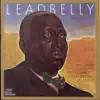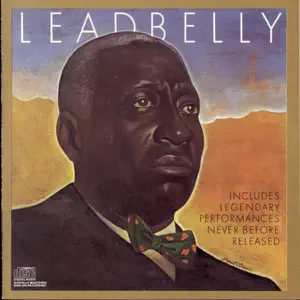


Acerca de John Lomax
Born a farmer's son in Goodman, MS, in 1867, John Lomax would play a central role in recording, preserving, and promoting American folk songs. Lomax grew up in rural Texas where he developed a love for cowboy songs and made a hobby of transcribing them. When he shared his work with professors at the University of Texas, they discouraged him from pursuing this pastime; he accepted a job at the college and began a career in academia. In 1906, while attending Harvard to obtain an M.A. in literature, he once again ventured to share his transcriptions of folk songs with two professors, Barrett Wendell and George Lyman Kittredge. Both men encouraged Lomax. He continued teaching at University of Texas after leaving Harvard, but also received fellowships for song collecting trips. This led to his first book, Cowboy Songs and Other Frontier Ballads, in 1910, a groundbreaking work that helped establish the validity of the American folk song outside of the British tradition. He also joined with Professor Leonidas Payne in establishing a Texas branch of the American Folklore Society, an organization committed to preserving folklore before it disappeared. rnLomax's career fell on hard times when he lost his teaching position in 1917 as a result of state and university politics, and he relocated to Chicago. For the next 15 years he would work a variety of jobs, including spending ten years as a banker, and devoted little time to collecting folk songs. In 1931, personal tragedy struck the Lomax family. John Lomax was bedridden for eight months due to illness, causing him to lose his job; when he began to recover, his wife Bess Brown Lomax died at the age of 50. John, Jr. encouraged his father to go out on the lecture circuit to revive his spirits, and in 1933 Lomax began a productive ten-year relationship with the Library of Congress. "Over the next decade, John Sr. and Alan [his son] would travel tens of thousands of miles and make thousands of recordings," wrote Benjamin Filene in Public Memory & American Roots Music. "They did so not with the detachment of academics but with the zeal of proselytizes." The Library of Congress provided the Lomax's with a 315 pound recording machine that they would first use on a historic song gathering trip to the South.rnThe Lomax's spent a great deal of this 16,000 mile trip visiting Southern prisons, believing that prisoners who had been isolated from recent musical trends would be more likely to have preserved pure folk songs. In a Louisiana prison they "discovered" 44-year-old Huddie Ledbetter, better known as Leadbelly, the African-American folksinger who would bring "Midnight Special" and "Goodnight Irene" into the American folk tradition. Both Lomax's -- John and Alan -- would be instrumental in promoting Leadbelly's career, presenting him as an authentic singer from the folk tradition. In 1934, John Lomax published American Ballads and Folk Songs, a collection that would lead some scholars to question his methods of transcribing songs. "Many of the transcribed songs were composites that Lomax put together from numerous (unidentified) variants," wrote Current Biography, "and his selections were guided by a nostalgic attachment to the Agrarian values of the past." rnLomax would be appointed to a number of prominent positions during the '30s, including Honorary Curator of the Archive of American Folk Song at the Library of Congress (1934) and as folklore editor at the Federal Writers' Project (1936). Although Lomax would partially retire in 1940, he continued to collect folk music for the remainder of his life and published his autobiography, Adventures of a Ballad Hunter, in 1947. By the time of his death in 1948, Lomax had aided in the collection of over 10,000 folk songs for the Library of Congress, establishing the validity of the American folk song and forever leaving his mark on American music scholarship. ~ Ronnie D. Lankford, Jr.
Nosotros
Notas
